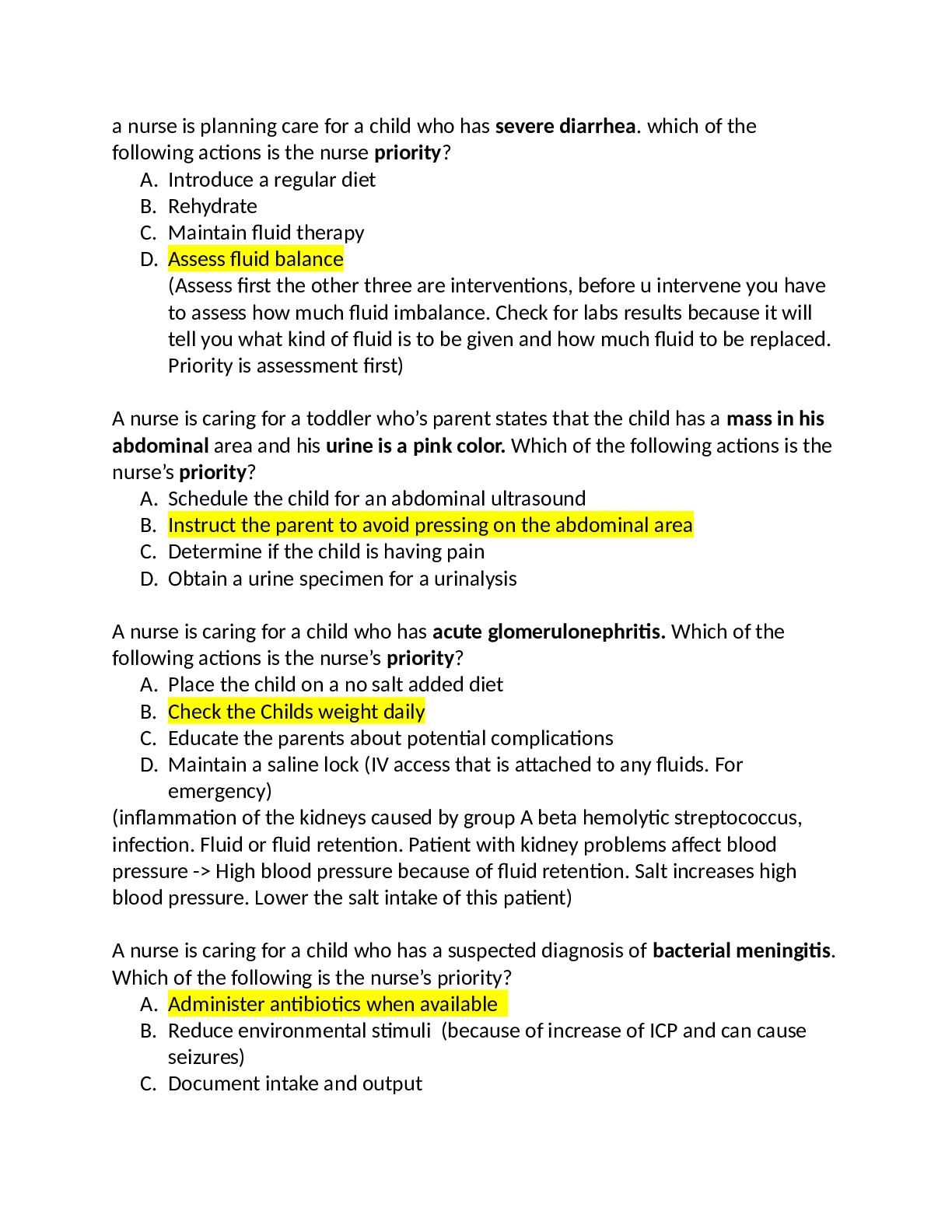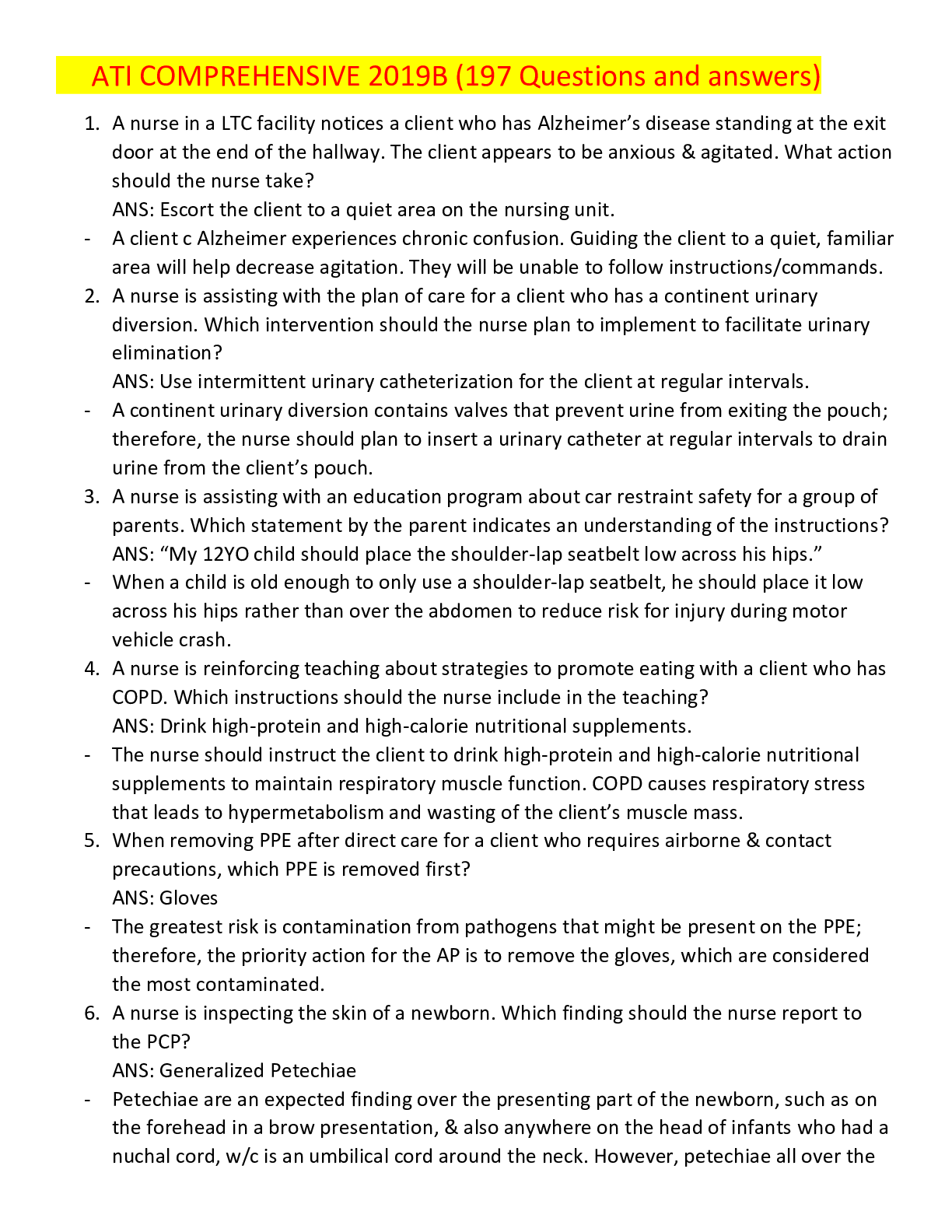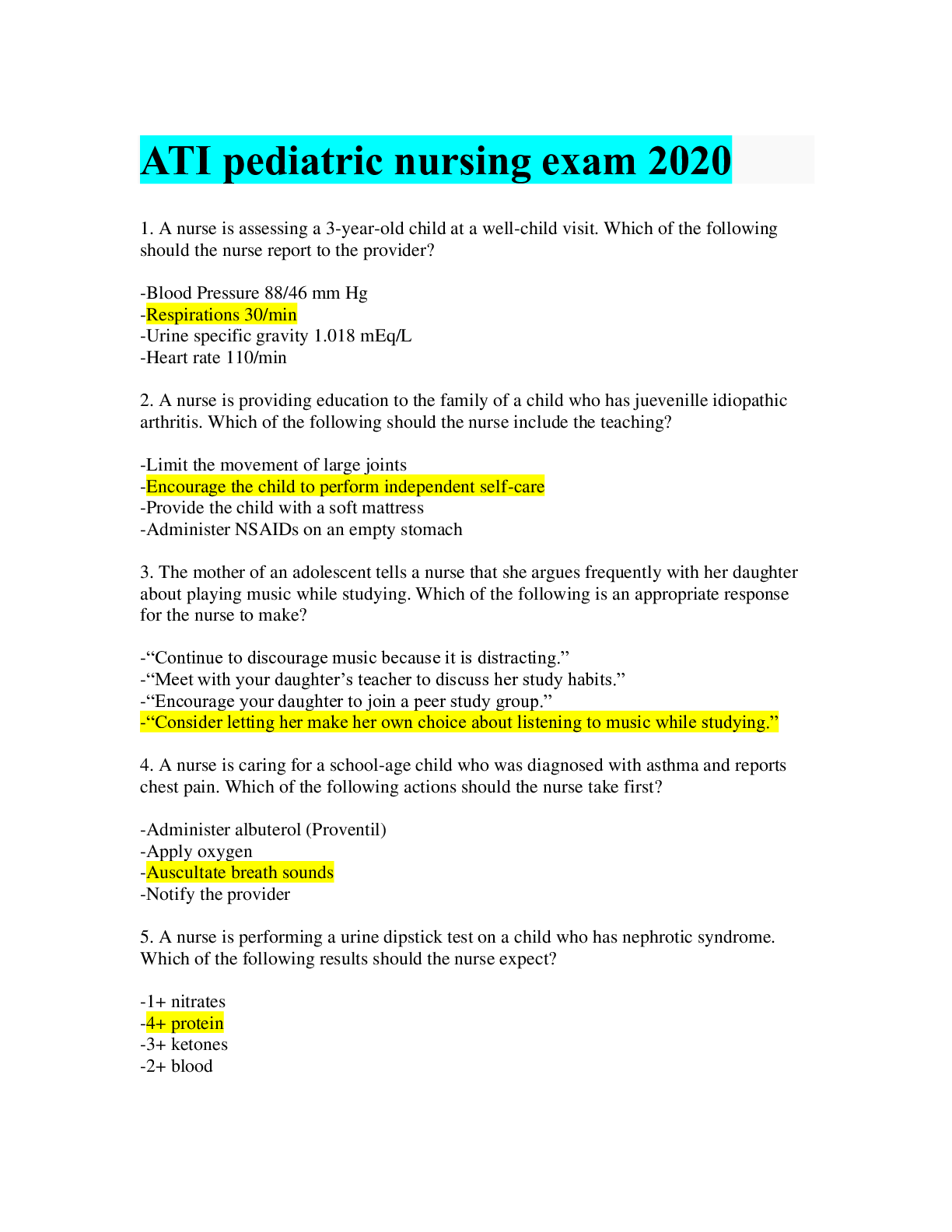*NURSING > QUESTIONS and ANSWERS > ATI Adult Nursing (NUR 105) Med Surg Test Questions and Answers with Explanations Chapter 14 Shock a (All)
ATI Adult Nursing (NUR 105) Med Surg Test Questions and Answers with Explanations Chapter 14 Shock and Multiple Organ Dysfunction Syndrome
Document Content and Description Below
ATI Adult Nursing (NUR 105) Med Surg test questions Chapter 14: Shock and Multiple Organ Dysfunction Syndrome 1. A nurse in the ICU is planning the care of a patient who is being treated for shock.... Which of the following statements best describes the pathophysiology of this patients health problem? a. Blood is shunted from vital organs to peripheral areas of the body. b. Cells lack an adequate blood supply and are deprived of oxygen and nutrients. c. Circulating blood volume is decreased with a resulting change in the osmotic pressure gradient. d. Hemorrhage occurs as a result of trauma, depriving vital organs of adequate perfusion. Ans: B Feedback: Shock is a life-threatening condition with a variety of underlying causes. Shock is caused when the cells have a lack of adequate blood supply and are deprived of oxygen and nutrients. In cases of shock, blood is shunted from peripheral areas of the body to the vital organs. Hemorrhage and decreased blood volume are associated with some, but not all, types of shock. 2. In an acute care setting, the nurse is assessing an unstable patient. When prioritizing the patients care, the nurse should recognize that the patient is at risk for hypovolemic shock in which of the following circumstances? a. Fluid volume circulating in the blood vessels decreases. b. There is an uncontrolled increase in cardiac output. c. Blood pressure regulation becomes irregular. d. The patient experiences tachycardia and a bounding pulse. Ans: A Feedback: Hypovolemic shock is characterized by a decrease in intravascular volume. Cardiac output is decreased, blood pressure decreases, and pulse is fast, but weak. 3. The emergency nurse is admitting a patient experiencing a GI bleed who is believed to be in the compensatory stage of shock. What assessment finding would be most consistent with the early stage of compensation? a. Increased urine outputb. Decreased heart rate c. Hyperactive bowel sounds d. Cool, clammy skin Ans: D Feedback: In the compensatory stage of shock, the body shunts blood from the organs, such as the skin and kidneys, to the brain and heart to ensure adequate blood supply. As a result, the patients skin is cool and clammy. Also in this compensatory stage, blood vessels vasoconstrict, the heart rate increases, bowel sounds are hypoactive, and the urine output decreases. [Show More]
Last updated: 2 years ago
Preview 1 out of 20 pages
 Med Surg Test Questions and Answers with Explanations Chapter 14 Shock and Multiple Organ Dysfunction Syndrome.png)
Buy this document to get the full access instantly
Instant Download Access after purchase
Buy NowInstant download
We Accept:

Reviews( 0 )
$10.00
Can't find what you want? Try our AI powered Search
Document information
Connected school, study & course
About the document
Uploaded On
Apr 30, 2021
Number of pages
20
Written in
Additional information
This document has been written for:
Uploaded
Apr 30, 2021
Downloads
0
Views
40

 EXAM REVIEW QUESTIONS AND ANSWERS WITH EXPLANATIONS GRADED A.png)
 3 COMBINED VERSIONS COMPLETE SOLUTIONS TO 210 QUESTIONS.png)
 TEST QUESTIONS AND ANSWERS PROVIDED (2021).png)
 EXAM REVIEW Questions and Answers.png)
 Correct Study Guide, Download to Score A.png)
 Correct Study Guide, Download to Score A.png)
 (Latest 2021) Correct Study Guide, Download to Score A.png)
 Correct Study Guide, Download to Score A.png)
 Med SurgTest Questions and Answers with Explanations Chapter 04 Health Education and Promotion.png)
 Med Surg Test Questions and Answers with Explainations Chapter 03 Critical Thinking, Ethical Decision Making and the Nursing Process.png)
 Med Surg Test Questions and Answers with Explanations Chapter 02 Community-Based Nursing Practice.png)
 Med Surg Test Questions and Answers with Explanations Chapter 23 Management of Patients with Chest and Lower Respiratory Tract Disorders.png)









 – Miami Dade College.png)
Perop.png)


